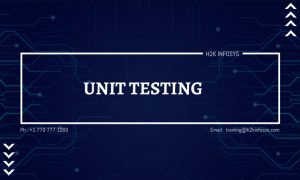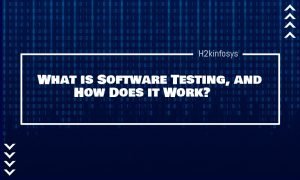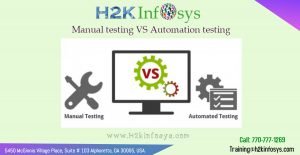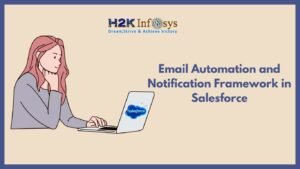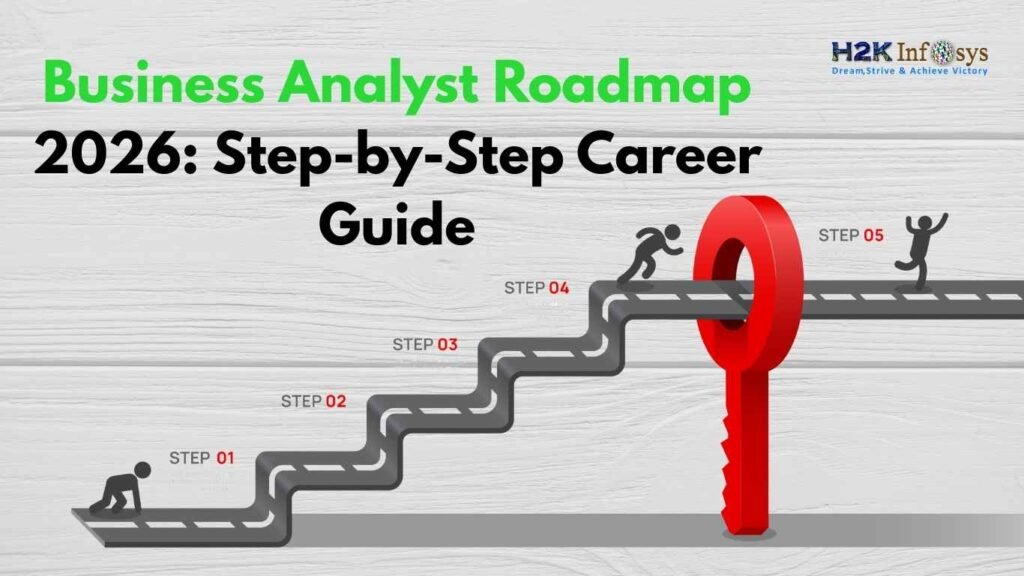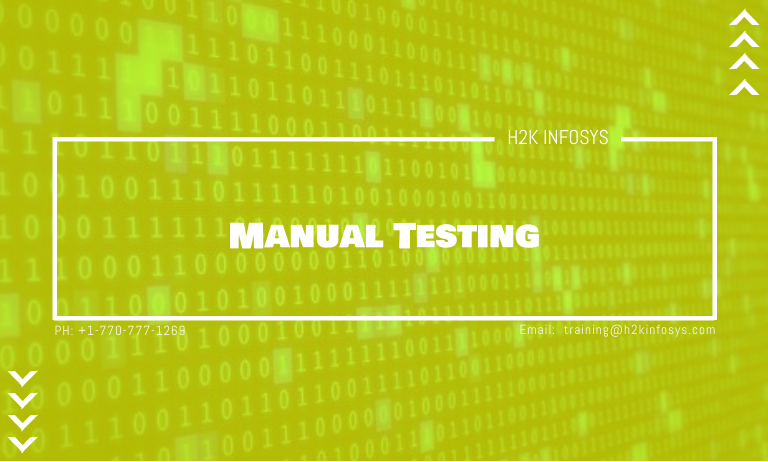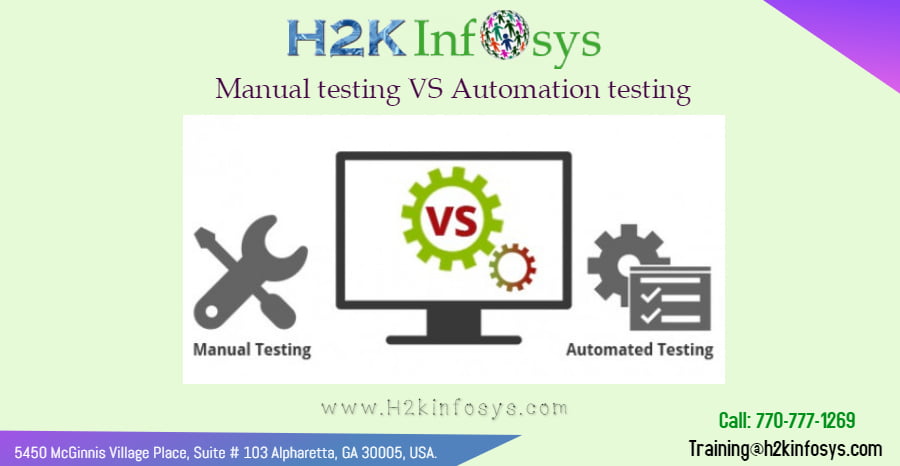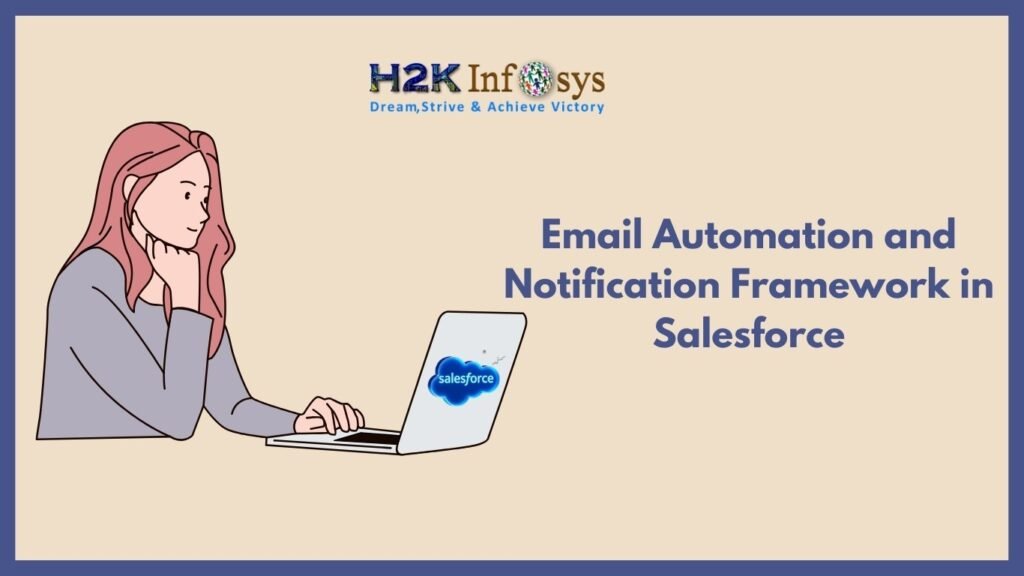Introduction
Automation has revolutionized software testing, transforming how organizations deliver quality software faster and more efficiently. Manual testing alone can no longer keep up with today’s rapid release cycles. Automated testing professionals skilled in tools like Selenium, Cypress, TestComplete, and Tosca are now among the most in-demand experts in the IT job market.
Whether you are a beginner exploring a Software testing and quality assurance course or an experienced tester upgrading through Quality assurance tester training, this guide reveals the top 10 automated software testing jobs worth pursuing in 2025 and beyond.
1. Automation Test Engineer
Overview
Automation Test Engineers design, develop, and execute automated test scripts that validate software functionality, performance, and security. They ensure consistent quality across multiple releases and environments.
Key Responsibilities
- Develop and maintain automated test frameworks
- Integrate testing with CI/CD pipelines
- Collaborate with developers and QA teams to identify bugs early
- Use tools like Selenium WebDriver, Cypress, or Playwright
Required Skills
- Strong programming knowledge (Python, Java, or JavaScript)
- Experience with Jenkins, Git, or Azure DevOps
- Familiarity with API testing tools such as Postman or RestAssured
Salary Range
Automation Test Engineers earn around $80,000 – $120,000 annually in the U.S., depending on experience and certifications.
2. QA Automation Architect
Overview
The QA Automation Architect is a senior-level role focused on designing robust automation frameworks that support enterprise-wide testing strategies.
Key Responsibilities
- Define automation architecture and standards
- Choose appropriate tools and frameworks for each project
- Implement scalable and maintainable testing solutions
- Mentor QA teams in automation best practices
Required Skills
- Deep understanding of test design patterns
- Proficiency in CI/CD orchestration tools (GitLab, Bamboo)
- Strong leadership and communication abilities
Career Path
Professionals who complete a Software testing and quality assurance course often advance to this strategic role after several years of experience.
3. SDET (Software Development Engineer in Test)
Overview
SDETs are hybrid professionals who combine developer expertise with testing knowledge. They design testable software components and build automation frameworks aligned with development workflows.
Key Responsibilities
- Write unit, integration, and UI automation tests
- Contribute to code reviews and development cycles
- Integrate automated testing with CI/CD pipelines
Required Skills
- Strong coding background in Java, C#, or Python
- Hands-on experience with Selenium, JUnit, and TestNG
- Familiarity with microservices testing and containerization (Docker, Kubernetes)
Salary Range
SDETs typically earn between $100,000 and $140,000 per year in the U.S., making this one of the most lucrative automated testing jobs.
4. Performance Test Engineer
Overview
Performance Test Engineers evaluate an application’s speed, scalability, and reliability under load. They identify bottlenecks and ensure optimal user experiences even during high-traffic conditions.
Key Responsibilities
- Design and execute performance and stress tests
- Use tools such as JMeter, LoadRunner, or Gatling
- Analyze performance metrics and suggest optimizations
Required Skills
- Understanding of system architecture and database performance
- Familiarity with network protocols and monitoring tools
- Experience in test scripting and result interpretation
Why It’s Important
With digital transformation, companies need software that performs efficiently at scale. Hence, demand for performance testers continues to rise globally.
5. Mobile Automation Test Engineer
Overview
Mobile Automation Test Engineers specialize in testing mobile apps across iOS, Android, and hybrid environments using automation frameworks.
Key Responsibilities
- Automate functional and regression tests using Appium or Espresso
- Ensure compatibility across devices and operating systems
- Work with cloud testing platforms like BrowserStack or Sauce Labs
Required Skills
- Knowledge of Swift, Kotlin, or JavaScript
- Familiarity with CI/CD mobile pipelines
- Expertise in mobile UI/UX testing principles
Career Advantage
Completing a Quality assurance tester training program that covers mobile automation frameworks can accelerate entry into this high-growth career path.
6. API Automation Engineer
Overview
API Automation Engineers verify communication between backend services, ensuring seamless data exchange in modern microservice architectures.
Key Responsibilities
- Build and maintain API test frameworks using tools like Postman, RestAssured, or SoapUI
- Automate API validation through continuous integration setups
- Write scripts to handle authentication, data validation, and response comparison
Required Skills
- Strong grasp of REST, GraphQL, and JSON
- Knowledge of Java, Python, or C#
- Familiarity with DevOps pipelines and container testing
Real-World Impact
APIs power today’s interconnected apps. Effective API testers guarantee reliability, interoperability, and security for multi-platform systems.
7. Continuous Integration (CI) Test Engineer
Overview
CI Test Engineers ensure automation testing is seamlessly integrated into DevOps pipelines. They make sure that every build, commit, or deployment is validated through automated testing.
Key Responsibilities
- Configure and maintain Jenkins, GitHub Actions, or Azure Pipelines
- Automate build verification and regression suites
- Collaborate with developers to resolve integration failures
Required Skills
- Strong knowledge of scripting (Bash, Python, Groovy)
- Experience with Docker containers and Kubernetes clusters
- Familiarity with version control tools like Git
Industry Demand
Organizations practicing DevOps rely heavily on CI Test Engineers to maintain continuous quality assurance throughout delivery pipelines.
8. Security Automation Engineer
Overview
Security Automation Engineers focus on automating security validation to detect vulnerabilities early in the development cycle.
Key Responsibilities
- Integrate automated security scans (SAST, DAST) into CI/CD pipelines
- Use tools like OWASP ZAP, Burp Suite, and Snyk
- Collaborate with developers to patch vulnerabilities and secure APIs
Required Skills
- Understanding of secure coding principles
- Knowledge of cybersecurity frameworks
- Familiarity with Python scripting for automation
Career Edge
As companies adopt DevSecOps practices, demand for Security Automation Engineers is growing rapidly across banking, healthcare, and fintech sectors.
9. Test Data Management (TDM) Engineer
Overview
TDM Engineers automate the creation, masking, and management of test data. They ensure data consistency across multiple test environments.
Key Responsibilities
- Build scripts for test data provisioning and cleanup
- Integrate data automation into pipelines
- Ensure compliance with data privacy regulations (GDPR, HIPAA)
Required Skills
- SQL and database management
- Familiarity with tools like Informatica TDM or Delphix
- Understanding of synthetic data generation techniques
Why It’s Critical
Automated data management reduces manual test setup time and improves accuracy, directly supporting faster releases.
10. Robotic Process Automation (RPA) Test Engineer
Overview
RPA Test Engineers focus on testing automation bots built on platforms like UiPath, Blue Prism, and Automation Anywhere. They ensure robotic workflows execute business logic accurately.
Key Responsibilities
- Develop and maintain RPA test suites
- Validate automation scripts against business rules
- Identify and fix exceptions or logic errors
Required Skills
- Hands-on experience with RPA tools and frameworks
- Scripting knowledge (VBScript, Python)
- Understanding of workflow automation and data handling
Career Outlook
RPA adoption in industries such as insurance, banking, and retail is soaring. Qualified testers with automation and process knowledge are highly sought after.
Why Learn Automated Software Testing?
The global software testing market is projected to exceed $70 billion by 2027, with automation accounting for over 60 percent of QA activities. Learning automation ensures you remain relevant in a market where efficiency, speed, and accuracy define success.
Advantages of Automation Careers
- High Demand across industries
- Attractive Salaries with growth potential
- Remote Work Opportunities due to digital workflows
- Cross-Industry Relevance in finance, healthcare, retail, and telecom
A solid Software testing and quality assurance course gives you a strong foundation in automation frameworks, scripting, and testing methodologies equipping you to secure one of these top ten roles.
Essential Skills for Automated Testing Jobs
1. Programming Proficiency
Automation testing requires fluency in at least one scripting or programming language such as Python, Java, C#, or JavaScript.
2. Framework and Tool Mastery
Gain expertise in leading automation tools like Selenium, Appium, TestComplete, Cypress, and Tosca.
3. CI/CD Knowledge
Understanding how automation fits into DevOps pipelines is crucial. Tools like Jenkins, GitLab CI, and Azure Pipelines are used daily in QA roles.
4. API and Database Testing
Automated testing extends beyond UI. Testers should understand RESTful APIs, SQL queries, and data validation techniques.
5. Analytical and Debugging Skills
Being able to identify root causes and improve script efficiency makes you a standout automation professional.
6. Cloud and Virtual Environment Familiarity
Cloud-based testing environments such as AWS Device Farm, LambdaTest, or Sauce Labs provide scalability for global teams.
Learning Path to Become an Automation Tester
If you are starting your journey, here is a practical step-by-step roadmap:
- Start with Manual Testing – Build a foundation by understanding QA processes, defect life cycle, and test case design.
- Enroll in a Quality Assurance Tester Training Program – Learn core testing principles, tools, and automation fundamentals.
- Master Programming Languages – Focus on Python or Java for automation scripting.
- Learn Automation Tools – Gain hands-on experience with Selenium, Appium, or Cypress.
- Understand Framework Design – Explore keyword-driven, data-driven, and hybrid frameworks.
- Integrate CI/CD Pipelines – Use Jenkins, Git, or Azure DevOps for continuous testing.
- Build a Portfolio – Work on live or open-source automation projects.
- Get Certified – Certifications from ISTQB or tool-specific vendors validate your skills.
- Apply for Entry-Level Jobs – Look for Automation Tester or QA Analyst positions.
- Advance to Specialist or Architect Roles – With experience, transition to leadership and strategy roles in automation.
Industries Hiring Automated Testers
Automated testing professionals are needed across multiple sectors:
- Banking and Finance: Ensure secure, compliant apps and payment gateways.
- Healthcare: Validate EHR systems and medical software accuracy.
- E-Commerce: Test scalability for high-volume transactions and user interfaces.
- Telecommunications: Automate network and device testing.
- Gaming and Entertainment: Guarantee bug-free experiences in real-time applications.
Each industry seeks professionals who can automate end-to-end testing and improve release speed while maintaining quality standards.
Future Trends in Automated Testing
1. AI and Machine Learning in Testing
AI-driven tools like Testim and Mabl help generate self-healing scripts that adapt to UI changes automatically.
2. Shift-Left Testing
Testing earlier in the development lifecycle reduces defects and costs significantly.
3. Continuous Testing
With DevOps adoption, continuous testing integrates QA into every stage of the software pipeline.
4. Low-Code Automation Tools
Tools like Katalon Studio and Tosca enable non-coders to build automated tests through visual interfaces.
5. Cloud-Based Testing
Cloud platforms enhance scalability and enable global test execution across multiple devices and browsers.
Conclusion
Automation testing has evolved from a specialized skill to a core requirement for modern software development. Whether you aspire to become an Automation Engineer, SDET, or QA Architect, the career possibilities are diverse and high-paying.
Starting with a structured Software testing and quality assurance course program can help you build foundational skills and gain hands-on experience with automation tools and frameworks. With continuous learning and certifications, you can grow from a beginner to a highly sought-after QA automation specialist in a rapidly digitizing world.
Key Takeaway
Automated software testing careers combine technical excellence and creative problem-solving. If you invest time in training an






